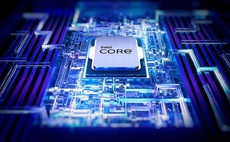Unable to use Windows, or AMD or Intel CPUs, Huawei 'indefinitely postpones' new MateBook launch amid speculation it will withdraw from laptop market
Huawei has abandoned plans to launch a new range of MateBook laptops as a result of US trade sanctions preventing it from using Microsoft Windows, as well as Intel and AMD microprocessors. The m...
To continue reading this article...
Join Computing
- Unlimited access to real-time news, analysis and opinion from the technology industry
- Receive important and breaking news in our daily newsletter
- Be the first to hear about our events and awards programmes
- Join live member only interviews with IT leaders at the ‘IT Lounge’; your chance to ask your burning tech questions and have them answered
- Access to the Computing Delta hub providing market intelligence and research
- Receive our members-only newsletter with exclusive opinion pieces from senior IT Leaders




















